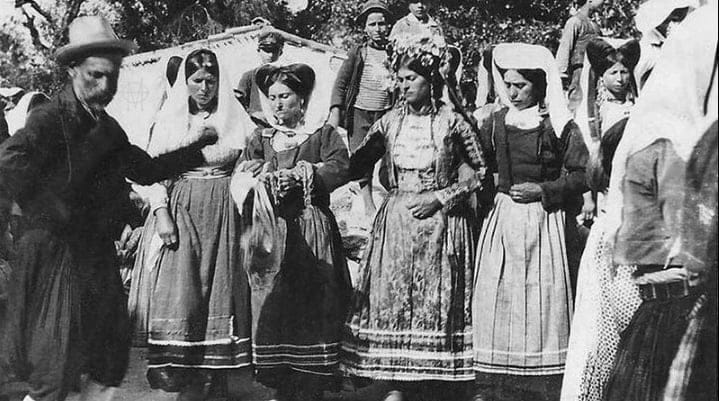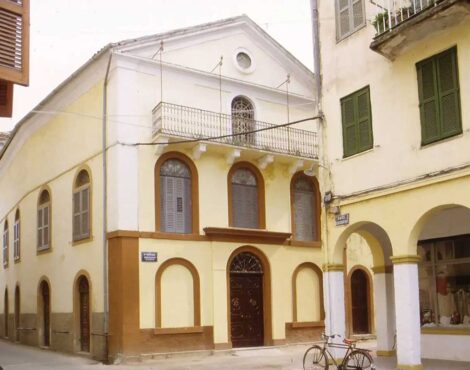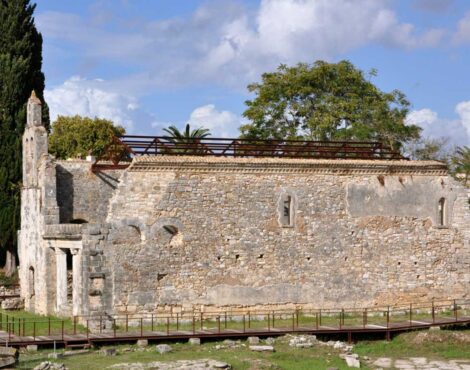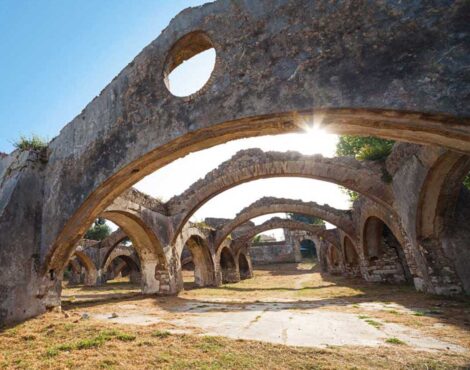Introduction: Where Myth Meets Memory
Corfu is not only an island of beaches, fortresses, and olive groves it is also a land of stories. Whispered in village squares, passed down by grandparents, or carved into rituals and songs, Corfu’s folklore reveals the hidden soul of the island. Myths of gods, legends of heroes, tales of spirits, and everyday proverbs create a cultural tapestry that enriches the island’s identity. For the traveler, discovering Corfu’s folklore is to step into a world where history and imagination intertwine.
Echoes of Mythology
Corfu, known as Kerkyra in Greek, appears in ancient mythology. According to legend, Poseidon, god of the sea, abducted the nymph Korkyra and brought her to this island, giving it her name. Their son, Phaiax, became the mythical ancestor of the Phaeacians, celebrated in Homer’s Odyssey as skilled sailors and hosts of Odysseus.
These myths form the roots of Corfu’s identity: an island linked with the sea, hospitality, and divine protection.
The Lady of the Lake: Kyra Frosini
One of Corfu’s most tragic and romantic legends tells of Kyra Frosini, a noblewoman from Ioannina who was drowned by order of Ali Pasha in 1801. Though not a Corfiot by birth, her story became interwoven with Ionian folklore. Poems, songs, and even operas immortalized her as a symbol of love, sacrifice, and injustice. Corfiot storytellers wove her fate into local tales, linking her spirit with the island’s waters and seas.
Ghosts of Abandoned Villages
As we’ve seen in Corfu’s forgotten villages, folklore often arises where life has vanished. Locals speak of shadowy figures wandering the ruins of Old Perithia or voices heard on misty nights in Sinies. These ghost stories are not just about fear but about memory reminders of families who left their homes behind, leaving spirits that refuse to depart.
The Legend of the Old Fortress
Corfu’s Old Fortress is steeped in legend. One tale tells of a secret tunnel beneath the sea, connecting it to the New Fortress. Another speaks of phantom soldiers still guarding the bastions on stormy nights. Such stories reflect the island’s turbulent past, when fortresses were lifelines against invaders.
Sacred Folklore: Saint Spyridon
No exploration of Corfu’s legends is complete without Saint Spyridon, the island’s patron saint. Revered as the protector of Corfu, he is credited with saving the island from famine, plague, and Ottoman sieges. Four grand processions each year celebrate his miracles, blending religious devotion with folkloric reverence. Locals recount how his shoes wear out from walking the island to protect it — a touching image that keeps faith and folklore alive.
Music and Oral Traditions
Corfu’s folklore thrives not only in legends but in music and storytelling.
- Cantades: Romantic serenades sung in village squares, echoing Venetian and local influences.
- Proverbs and sayings: Everyday wisdom passed orally, often tied to nature, farming, and the sea.
- Folk songs: Narratives of love, war, and migration, keeping memories alive across generations.
Witches, Fairies, and Nature Spirits
Like much of Greece, Corfu’s folklore includes supernatural beings. Old tales speak of nereids (sea nymphs) who dance on beaches at night, or of witches who cast spells from mountaintop caves. Children once grew up hearing stories meant to warn, entertain, or explain the unexplainable. These myths reflect Corfu’s intimate relationship with its natural environment — the sea, mountains, and forests all become enchanted landscapes.
Festivals and Folklore Alive
Folklore in Corfu is not locked in the past — it still breathes in festivals and customs:
- Easter: Clay pot smashing (botides) is linked to symbolic renewal, a mix of folklore and ritual.
- Carnival (Apokries): Venetian-style parades with masks, music, and playful mischief.
- Village feasts (panigyria): Traditional dances and songs that carry centuries of oral history.
These events let visitors experience folklore not as museum relics but as living traditions.
Why Folklore Matters
Folklore is the memory of a people, carrying truths disguised as stories. In Corfu, it bridges the island’s diverse past Greek, Venetian, British into a shared cultural identity. For travelers, engaging with folklore means seeing beyond monuments and beaches to the soul of Corfu itself.
Conclusion: The Island of Stories
Every corner of Corfu holds a tale, whether whispered by the sea breeze, sung in a cantada, or told by elders in a quiet square. To explore the island’s folklore and legends is to discover Corfu not only as a place on the map but as a living storybook — one where myth, memory, and imagination converge.





